#FuelEfficiency
Silver and Gold: Nevada Joins California in the Gas War
On Monday, Nevada Governor Steve Sisolak announced that his state will embrace California-crafted emissions rules that are at odds with the national rollback finalized by the Trump administration in March.
Officially, Sisolak said the rules would not require residents to abandon their current ride “or choose one that does not work for their lifestyle or business needs.” Nevada has, however, decided to adopt higher mpg standards, as well as the Golden State’s zero-emission vehicle (ZEV) rules that require manufacturers to sell a certain number of electric or plug-in hybrid models each year based on the total number of vehicles sold within the state.
Companies in compliance accrue ZEV credits, which can then be traded or sold to other manufacturers for money. As with the Corporate Average Fuel Economy (CAFE) system, those that cannot hit their targets (or afford to buy up credits) will be fined. Tesla actually used such arrangements to make $594 million off its rivals in 2019, with the prospect of things only getting more lucrative for the all-electric brand.
Gas War: States Sue Trump Administration Over Fuel Rollback
Following America’s fueling feud has shown your author that it’s less about finding a reasonable compromise that works for consumers, the automotive industry, and environmental activists, and more about perpetuating ideological wars that now seem to surround every topic filtered through the news media.
Encouraged by industry leaders just days after taking office, President Donald Trump made the fuel economy rollback one of his first initiatives. It wasn’t until March that the softened final draft emerged, however, and it won’t be enough to conclude the almost four-year battle. A collection of 23 states filed suit against the Trump administration’s easing of emissions standards on Wednesday. They argue that the rollback is illegal and based on bunk information.
While we’ve also been suspect of some of the metrics used to make the rollback look more desirable, fueling standards haven’t adhered to reality in some time. The Obama-era standards that would have seen Corporate Average Fuel Economy (CAFE) rise to 54 mpg by 2025 were deemed unsustainable by that administration’s Environmental Protection Agency (EPA) and the National Highway Traffic Safety Administration (NHTSA), but were put into play anyway.
Bentley Bentayga Hybrid Offers Less Highway MPG Than V8 Model
While some degree of valueless virtue signaling accompanied the launch of Toyota’s Prius, most hybrid customers are an exceptionally practical lot. Fixated on the long game, they’re willing to weigh the added cost of supplemental electrification against an uptick in efficiency — attempting to calculate the duration of ownership required before they can start raking in the savings. However, the math doesn’t always work out like you’d think.
Recently assessed by the Environmental Protection Agency (EPA), the 2020 Bentley Bentayga Hybrid may not be the model for high-end customers looking to maximize their fuel economy. According to Green Car Reports, which obsessively tracks all things electric, Bentley’s Hybrid is actually less efficient on the highway and boasts a shorter maximum range than its V8 alternative.
With Fuel Economy Estimates in, Ram Scores a Light-duty Diesel Win Against Ford
The Environmental Protection Agency has gotten around to tinkering with Ram’s l atest EcoDiesel V6, and its early findings should put a smile on the faces of the folks in Auburn Hills. However, the estimated fuel economy of the latest (and totally legal) 3.0-liter diesel comes with an asterisk.
While the oil-burning Ram 1500 does seem to beat out Ford’s 3.0-liter Power Stroke both in terms of power and efficiency, both Ford and Ram take a backseat to General Motors.
NHTSA Acting Chief Heidi King to Roll on Down the Highway
The Senate won’t have to worry about approving the nomination of Heidi King as National Highway Traffic Safety Administration boss, as King won’t be there to fill the seat. The acting administrator of the NHTSA announced her resignation late Monday.
King, who joined the road safety agency as a deputy administrator in 2017, will leave her office at the end of the month. While President Donald Trump nominated King for the administrator job in 2018, the nomination never went to a full Senate vote — though she was twice approved by the Senate Committee on Commerce, Science and Transportation. Now, someone else will have to tackle the job of rolling back fuel efficiency standards.
Trump Officially Nominates Andrew Wheeler to Head the EPA
President Donald Trump nominated Andrew Wheeler as administrator of the Environmental Protection Agency on Wednesday, setting him up to permanently fill a position he’s already occupied since July.
Trump praised Wheeler in November his “fantastic job” as acting administrator of the EPA following the July 2018 resignation of the agency’s former scandal-ridden head, Scott Pruitt. This month, the president submitted Wheeler’s formal nomination to the Senate. There’s still a ways to go before the ex-lobbyist’s confirmation, though, as the Senate will no doubt be critical of his relatively recent ties to the coal industry.
GM's Famed 'Tripower' Is Back… As a Thrifty Four-cylinder
You won’t find three two-barrel carbs atop this Tripower mill. In fact, depending on the engine’s load, you might not even find three cylinders in operation.
General Motors plans to bring back a performance-focused name for its new 2.7-liter turbocharged four, Automotive News reports, giving the automaker a ballsy moniker for the engine it doesn’t want to admit is a four-cylinder.
Endless Pressure and Public Scandal Leads to Pruitt's Resignation as EPA Head
Environmental Protection Agency Administrator Scott Pruitt, who spearheaded the Trump administration’s initiative to roll back Obama-era fuel economy standards for light vehicles, has resigned. Even after assuming the position, Pruitt remained a tough sell as head of the EPA. His stance on climate change was uncharacteristic of any modern-day environmentalist and he seemed utterly bent on corporate deregulation to bolster profits and stimulate the economy.
Then came a flurry of scandals stemming from frivolous spending habits, improper use of authority, and possible business ties that would inhibit his ability to act in an unbiased manner. Numerous federal investigations were launched into these matters.
While a number of the impropriety claims came from political opponents actively hunting for gaps in his armor, let’s face it, Pruitt hasn’t been making things particularly difficult for them.
Gabbing on Gas: White House and California Still On Speaking Terms
Despite the growing animosity, both California and the Trump administration are still willing to discuss the country’s changing emission regulations. The state is currently heading a lawsuit against the Environmental Protection Agency, claiming it “acted arbitrarily and capriciously” in overturning the previous administration’s decision to maintain Corporate Average Fuel Economy standards.
While the proposals issued by the current administration will eventually see those targets rolled back, a final decision has not been made. The White House claims it wants to maintain an open dialogue with the Golden State, hoping to reach an agreeable solution, but the California Air Resources Board has argued it doesn’t seem to be acting on those assertions. Meanwhile, EPA head Scott Pruitt maintains that the state will not dictate federal fueling rules as automakers beg the government to do everything in its power to ensure a singular national mandate.
It’s an ugly situation, which makes news of a new round of meetings all the more surprising.
EPA Head Defends Fuel Economy Rules, Industry Ties On Capitol Hill
Environmental Protection Agency chief Scott Pruitt spent the majority of his Thursday being raked over the coals by the House Energy and Commerce subcommittee before a second (even uglier) exchange with the House Appropriations subcommittee. The majority of the time was spent addressing concerns surrounding Pruitt’s expenditures — things like unnecessary first-class travel, a $43,000 soundproof phone booth, and his 24-hour security team. There were also discussions about alleged death threats against Pruitt and EPA staff, his overall conduct, and even a little bit on environmental policy.
Those discussions, however, saw some subcommittee members accuse Pruitt of championing the profits of oil companies and automakers over the wellbeing of the planet. The EPA head spent the duration of Thursday defending his actions, including planned regulatory rollbacks on fuel economy. He also supported the automotive industry’s proposal to abolish 87 octane and replace it with 95.
As ugly as the day was for Pruitt, Republicans occasionally hopped on the mic to gently support him. Rep. Kevin Cramer of North Dakota said, “I think the greatest sin you’ve done is, you’ve actually done what President Trump ran on.”
America's Gas War Begins
Now that the Environmental Protection Agency has officially confirmed its intent to roll back Corporate Average Fuel Economy (CAFE) standards, the opposition has kicked things into high gear, mobilizing for the coming battle.
In one corner you have the White House and EPA Administrator Scott Pruitt seeking lowered emission mandates. They claim the Obama administration created unfeasible fueling regulations, noting that the public regularly opts for less-efficient trucks and SUVs and largely ignores the purchase of electric vehicles. In the other corner you have a handful of Senate Democrats, environmental groups, and a bunch of blue states led by California lawmakers. They all say the preexisting rules are not only feasible, but essential for the good of the nation.
If you’re wondering which side of the highly partisan issue is correct, we’d argue it has almost everything to do with your point of view. Both sides can make a fairly strong case, and will do just that as the battle heats up. Fortunately, this may not end up being a legitimate civil war — if the California Air Resources Board (CARB) is to be believed.
Triumph or Tragedy? EPA Officially Sides With Automakers on Fuel Economy Rollback
It looks as if the United States will find out if softened fuel economy targets will transform the domestic market into a haven for automobiles with exquisite powertrains or an antiquated dinosaur with garbage cars making use of old, pollution-friendly tech.
As predicted, the Environmental Protection Agency officially announced its intent to roll back Corporate Average Fuel Economy (CAFE) standards this week. On Monday, EPA head Scott Pruitt indicated his agency would begin the formal regulatory process with the Department of Transportation’s National Highway Traffic Safety Administration (NHTSA) to lower the existing MPG rules.
For the most part, Pruitt avoided diving deep into the NHTSA’s past claims of larger vehicles being safer and the manufacturing pitfalls associated with rushing cutting-edge technology to market — two issues we expected to be addressed. Instead, he left the announcement rather basic by stating the Obama-era rules were “not appropriate and should be revised.” The cornerstone of the EPA’s argument is that Americans simply aren’t buying more efficient automobiles, despite their current availability, and automakers have grown concerned with meeting CAFE standards after 2022.
“The Obama administration’s determination was wrong,” Pruitt said in a statement. “Obama’s EPA cut the midterm evaluation process short with politically charged expediency, made assumptions about the standards that didn’t comport with reality, and set the standards too high.”
EPA Readies Rollback of Fuel Efficiency Regulations
Rumors are flooding in that U.S. Environmental Protection Agency Administrator Scott Pruitt will sign a declaration upending the Obama-era fuel economy regulations any day now. New details have emerged claiming Pruitt plans to visit a Chevrolet dealership in Virginia to publicly condemn the existing 2025 targets as unrealistic. Reportedly scheduled for next Tuesday, the EPA head will be accompanied by groups representing both automakers and car dealers.
California is going to be furious.
Rare Rides: Honda Civic CVCC - Conserving Various Carbons, Circa 1977
Way back in the polyester era, there was a little thing called the Oil Crisis (circa 1973). And right about the time giant American barges were coughing and wheezing their way to the (empty) fuel station while managing eight miles per gallon, Honda had a little idea.
Say hello to the “Civic.”
QOTD: Variable Displacement - New Hotness or Inevitable Blowout?
At this week’s L.A. Auto Show and Traffic Negotiation Event, Infiniti will reveal the next generation QX50 — an overdue replacement for the aged model formerly known as the EX35. While the introduction of a crossover that’s losing its V6 and rear-wheel-drive platform wouldn’t normally interest me, the model’s new engine does.
Today we’re going to discuss variable displacement and the future of internal combustion engines. Fly or flop, what say you?




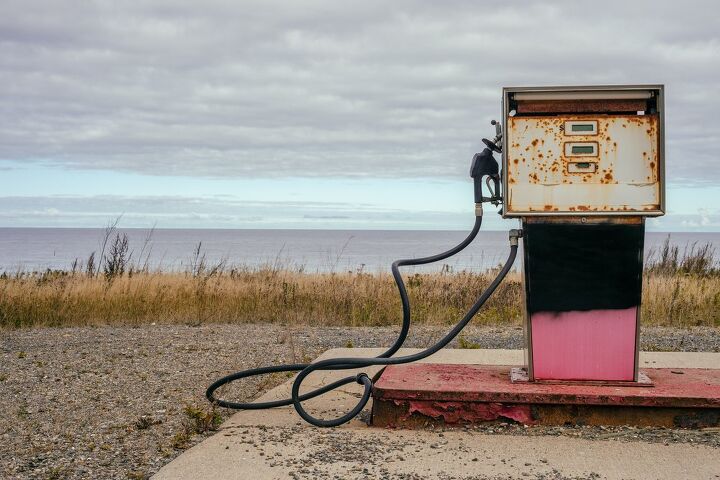

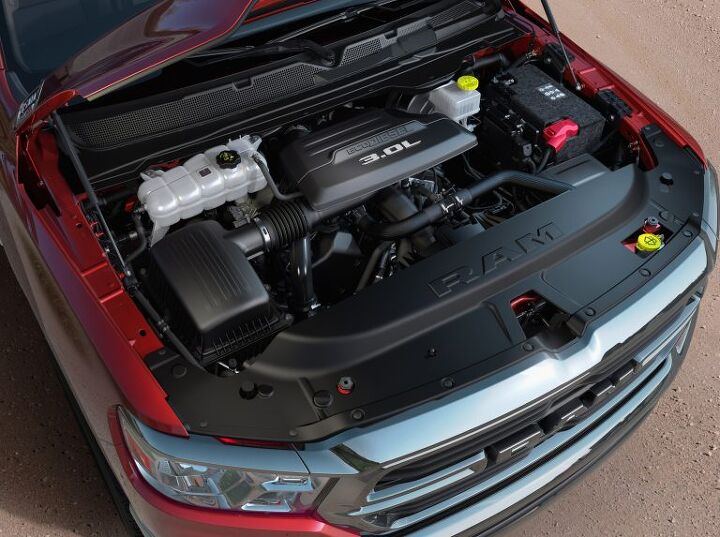



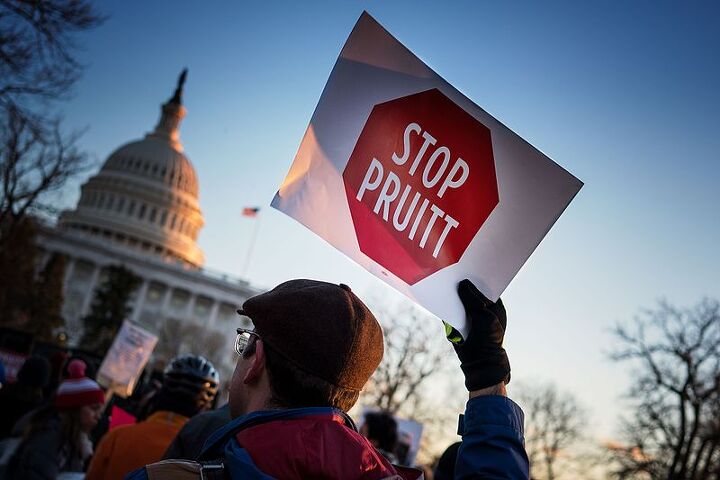

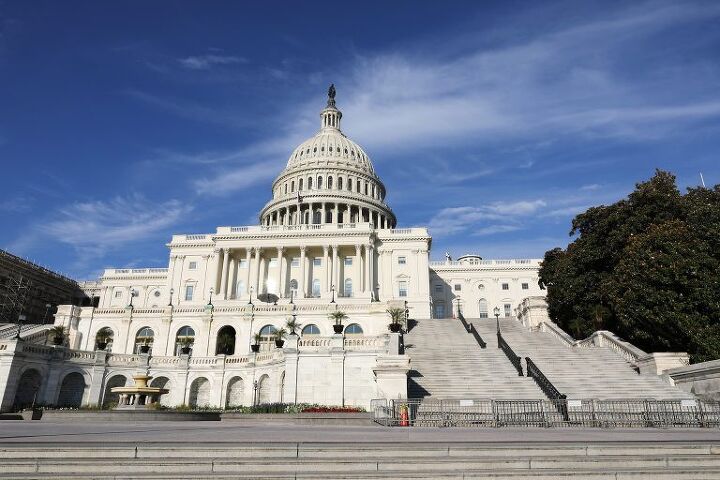

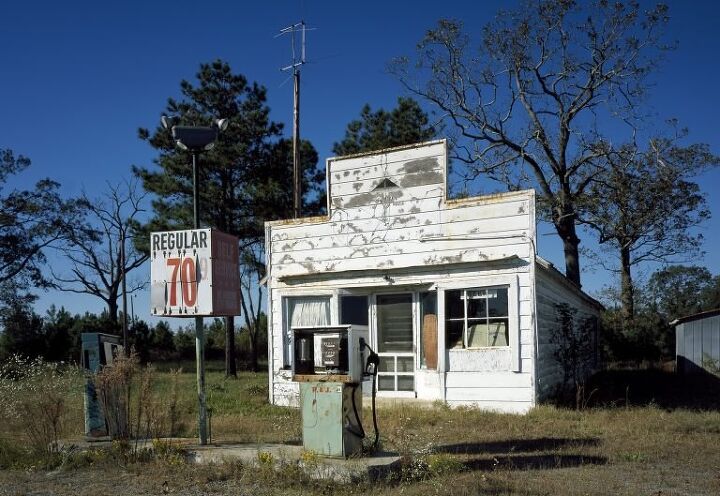

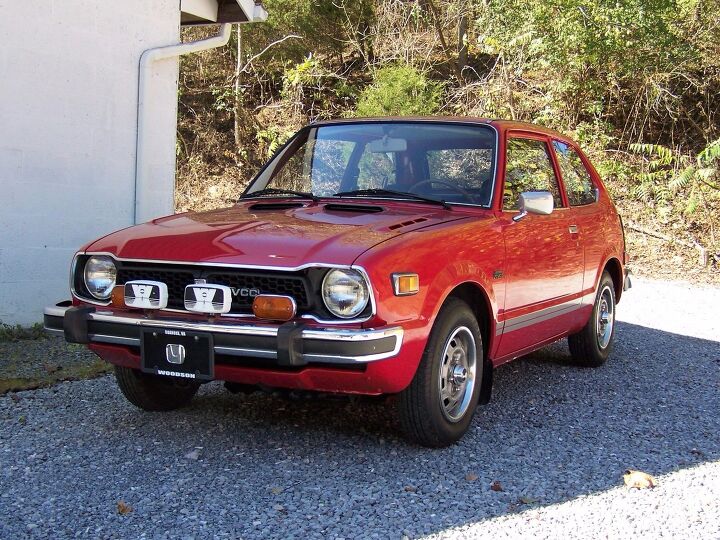













Recent Comments